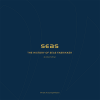The End of the Revolution: China and the Limits of Modernity
Challenging both the bureaucratic one-party regime and the Western neoliberal paradigm, China’s leading critic shatters the myth of progress and reflects upon the inheritance of a revolutionary past. In this original and wide-ranging study, Wang Hui examines the roots of China’s social and political problems, and traces the reforms and struggles that have led to the current state of mass depoliticization.
Arguing that China’s revolutionary history and its current liberalization are part of the same discourse of modernity, Wang Hui calls for alternatives to both its capitalist trajectory and its authoritarian past.
From the May Fourth Movement to Tiananmen Square, The End of the Revolution offers a broad discussion of Chinese intellectual history and society, in the hope of forging a new path for China’s future.
Praise for China’s New Order
“Wang has become one of the first indigenous voices to critique China’s ‘economic miracle’ fully and publicly, and to find it a deficient remedy for the failures of socialism.” — New York Times
“The most radical, tough-minded, and sustained analysis of 1989 and all that has followed that I have read. The punchy prose style gives the book an urgent, even strident, edge that makes it a pleasure to read.” — Tim Brook, University of Toronto
“An incisive, brilliant, always challenging analysis of China's intellectual landscape in the 1990s.” — William Kirby, Harvard University
Wang Hui is Professor of Chinese Language and Literature at Tsinghua University in Beijing and the former editor of Dushu, China”s most influential literary journal. He participated in the Tiananmen protest of 1989 and is the author of China’s New Order.
- Forlag: Verso
- Utgivelsesår: 2010
- Kategori: Historie
- Lagerstatus: Ikke på lagerVarsle meg når denne kommer på lager
- Antall sider: 274
- ISBN: 9781844673605
- Innbinding: Innbundet











